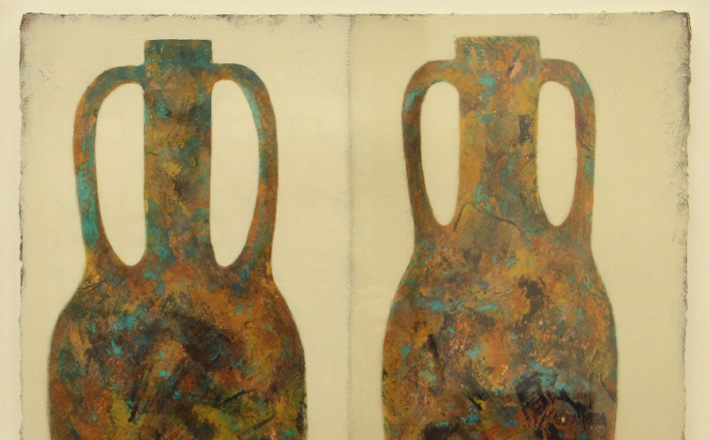Commentary on Psalm 126
Cyrus, a Persian emperor, ruled Babylonia from 538-530 B.C. His military victories put him in control of the largest empire of the world at that time.
His policy toward the conquered peoples was one of tolerance. His conquering of Babylonia and authorization of the return of the captive Israelites to rebuild the Jerusalem temple is an example of his enlightened rule. Isaiah calls Cyrus the anointed one of the Lord: “Thus says the LORD to his anointed, to Cyrus, whose right hand I have grasped to subdue nations before him and strip kings of their robes, to open doors before him — and the gates shall not be closed” (Isaiah 45:1). And further: “I have aroused Cyrus in righteousness, and I will make all his paths straight: he shall build my city and set my exiles free” (Isaiah 45:13).
This historical setting appears to be the context in which this Psalm was composed as the opening verse proclaims: “When the LORD restored the fortunes of Zion, we were like those who dream” (verse 1). Is it too good to be true that such an enlightened ruler like Cyrus of Persia could act for our deliverance from captivity in Babylon and from a people that does not know our God? Are we really free to return home and rebuild the house of our LORD on Mount Zion? This is all like a dream come true.
Expressions of joy continue by the Psalmist in an overflowing outpouring of joy: “Then our mouth was filled with laughter, and our tongue with shouts of joy” (verse 2a). The prospects of a captive people free to return to their homeland are overwhelming not only for those returning but for peoples of other nations: “Then it was said among the nations, ‘The LORD has done great things for them'” (verse 2b). In Cyrus of Persia have the people of the nations witnessed a deliverance of messianic expectation?
Not only has the Lord done “great things,” recognized by the peoples of the nations, but “The LORD has done great things for us, and we rejoiced” (verse 3). What more can be a cause for rejoicing than being delivered from captivity in a foreign land? The generation of Israelites that was taken into Babylonian captivity has had to live through the years of oppression and slavery. Now enveloped in freedom there is laughter and joy.
Think of that which enslaves us, in whatever form that takes in our lives, and from which we too long for freedom. The LORD who delivered the Israelites is the same LORD who comes to us in grace offering us the gift of freedom in Christ as the apostle Paul proclaims: “For freedom Christ has set us free. Stand firm, therefore, and do not submit again to a yoke of slavery” (Galatians 5:1).
Upon returning to their homeland the Israelites once again face the reality of life on the land. The Negeb desert is semi-arid land to which they have returned. When the rains come on such dry land they create torrents of water, rivers that wash away the dry soil: “Restore our fortunes, O LORD, like the watercourses in the Negeb” (verse 4). The plea of the newly settled people in their homeland is for planting and harvest seasons that will provide for the people.
If the sowing season finds rain that washes seed away rather than nourishing, then the people sow in tears. If the harvest time produces a bountiful crop then there will be a time of rejoicing: “May those who sow in tears reap with shouts of joy” (verse 5). The terrain may be different in your part of the country, but the concern of those who sow and reap remains the same. Praying for rain to sustain the growth and warmth to germinate the seed toward a rich harvest remain the same in any age.
The words of verse 5 are repeated in the concluding verse of the Psalm. “Those who go out weeping, bearing the seed for sowing, shall come home with shouts of joy, carrying their sheaves” (verse 6). The weeping, perhaps a sign of the anxiety of forthcoming rain, reflects that which accompanies the time of planting. For this time to be turned into shouts of joy must await the time of the abundance of harvest.
The concluding oracle in the book of Amos carries the same hope and trust in the LORD’s provision: “I will restore the fortunes of my people Israel, and they shall rebuild the ruined cities and inhabit them; they shall plant vineyards and drink their wine, and they shall make gardens and eat their fruit” (Amos 9:14).
As the promise of God’s steadfast love remains through seed time and harvest, so also the people are called to live in the promise of God’s presence with them in the land to which they have been planted. As the oracle in Amos concludes: “I will plant them upon their land, and they shall never again be plucked up out of the land that I have given them, says the LORD your God” (Amos 9:15).
What are we to make of such promises? The reading from Isaiah 43:16-21 for this Sunday expresses that the God who delivers from captivity and who redeems in times of drought, is the LORD God who promises in all of this a “new thing” which is ultimately a fulfillment of the “great things” of this Psalm (verse 2-3): “I am about to do a new thing; now it springs forth, do you not perceive it? I will make a way in the wilderness and rivers in the desert” (Isaiah 43:19).
The “new thing” is not another Cyrus of Persia, the one who fulfills the hope of Psalm 126, but one in whom the whole fullness of the LORD God abides. This is the hope centered in Jesus Christ, the anointed. Do you not perceive it? This is the promise of the God who keeps covenant with his people of old and new.


March 21, 2010